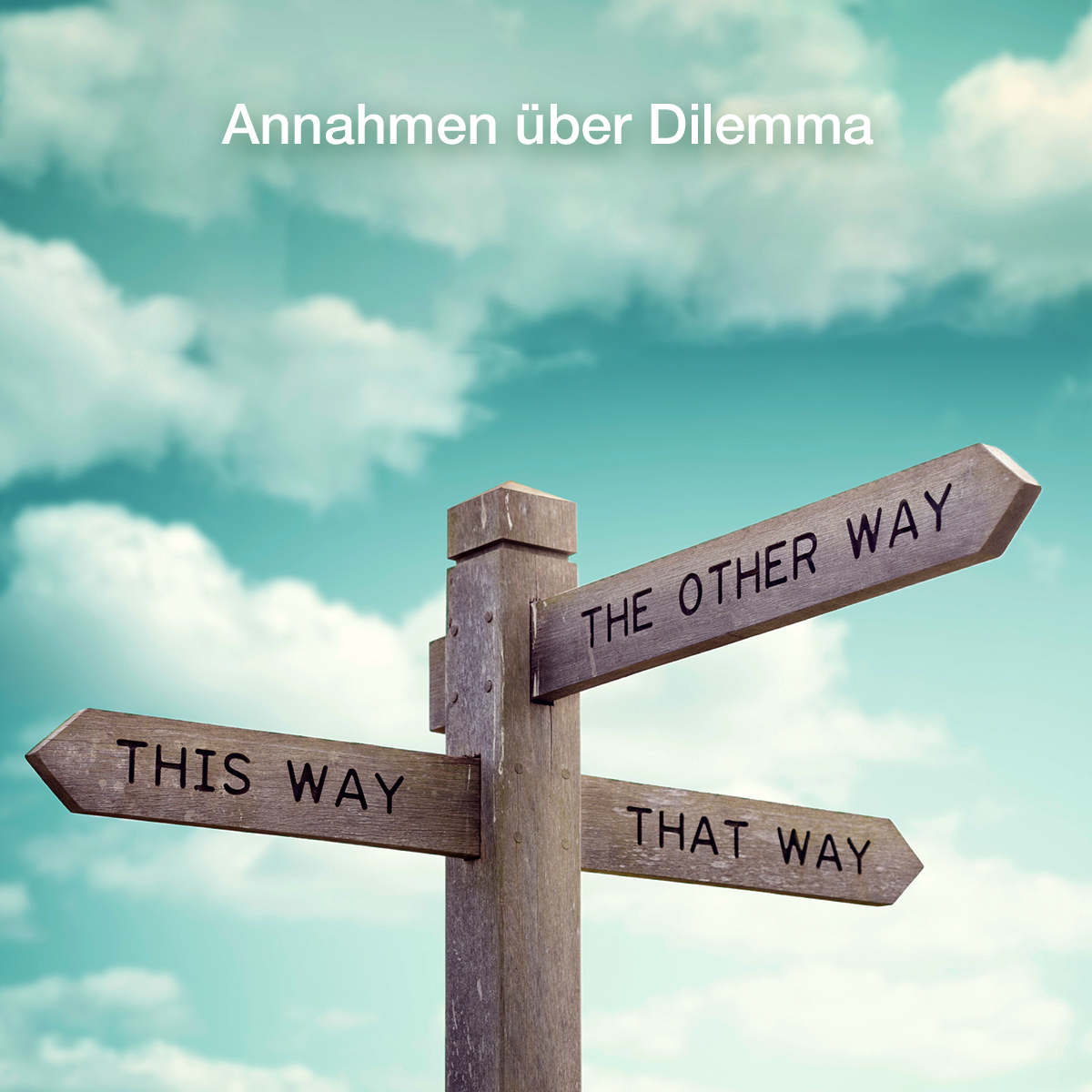A human (agent) is in a dilemma when he is forced by an external or internal compulsion to make a decision, the outcome of which has already been determined from the outset. If the result is positive, we speak of a “constructive dilemma”. In most cases, the term dilemma is associated with a negative outcome. So it is a “destructive dilemma”.
The number of decisions available determines the type of “dilemma”. At three it is then a “trilemma” and at four a “tetralemma”. If an agent comes into such a situation, only exactly these alternatives are available to him. Even if he doesn’t make a decision, the event happens.
The episode 1.1 of the Netflix series “Black Mirror” is a very impressive example. Two possible decisions are imposed on the English Prime Minister. No matter what he decides, he will lose his political career.
https://www.netflix.com/at/
In a dilemma, the agent has only two options, even if outsiders have a wider spectrum. It doesn’t help to show up here with alternative advice either. These cannot be implemented by the person concerned. If the agent had several options, he wouldn’t have got into this dilemma. From this insight there are now three possible scenarios for dealing with dilemmas.
To live as ingenious a life as possible in order to have as many alternatives as possible at all times. At least one plan B should always exist.
Since a dilemma always occurs in one system, a solution can be to provoke a disturbance elsewhere in the system.
Such disturbances always happen. Unless you are under time pressure, you can wait for this event. The dilemma has solved itself.
Basically, a dilemma cannot be solved at the level where it occurs. Even the agent himself is not able to do this. Solving the problem on another level is also very critical in the personal sphere. When an agent makes a massive cut in his life for himself, the dilemma may be gone but an even bigger problem has arisen.
A highly enriched environment is ideal as a preventive measure. This hardly creates a compulsion. Highest attention is paid to the emergence of compulsivity.




 Deutsch
Deutsch English
English